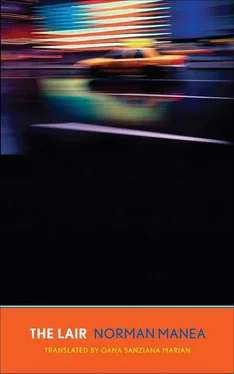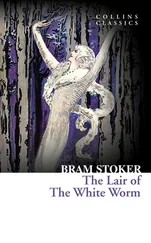The dawn was brightening. Exhausted, Gora was caressing the yellow gloves on the desk. The yellow folder slept.
After Peter Ga  par disappeared in the great American void, the obituary consumed most of Gora’s time, putting a healthy distance between his immediate reality and the fictive — and even more immediate — reality. He defied the bureaucratic, biographical limits, accustomed to naming the strict facts of the life lived. After all, any biography was just an obituary; every history has an end and an obituarist.
par disappeared in the great American void, the obituary consumed most of Gora’s time, putting a healthy distance between his immediate reality and the fictive — and even more immediate — reality. He defied the bureaucratic, biographical limits, accustomed to naming the strict facts of the life lived. After all, any biography was just an obituary; every history has an end and an obituarist.
After Peter disappeared, the Obituary RA 0298 had gained not only legitimacy but also urgency. Who could prove that Peter’s disappearance wasn’t definitive? Only Peter himself, who was in no hurry to produce the proof. Whom to ask and where to look for him? In the presumptions and potentialities it omitted from the bureaucratic biography.
Gora stopped short, with the red pencil suspended in the air. Shouldn’t he address Lu, finally?
The actor and the trapeze artist know what stage fright is; Gora also knew the spell in which every moment can produce a disaster. No matter how well he managed the manuscript … his hand trembled, his voice trembled, his temples were wet, as well as his hands, and snakes were ransacking his insides.
The telephone was just a step away, but, gratefully, Lu remained, inaccessible. Happiness was there, in the past that shouldn’t be disturbed. He murmured, “I don’t want the present; I don’t want to let go of happiness.”
The pencil in the air, his gaze on the screen with the day’s obituaries. Diurnal and nocturnal encounters and reencounters, accelerating his pulse and his mind.
The moment’s screen connects you instantly anywhere and transcribes your speaking or your silence. He could manage simple operations at the computer, and when he failed — that is, often — the rules went under. He couldn’t recuperate them; he’d lose the point of departure. It was the same with the driving; he’d be fine until the first mistake. Then the bewilderment would cancel his memory and instincts, and he became useless. He’d renounced the wheel but didn’t renounce shaving every morning, terrified that he might forget the routine, never to recover it again; it was the same with the tie, the terror, every time, that he’d forgotten how to tie the knot.
As usual, he’d awoken very early in the morning. The superb light of September. Bitter coffee, the abbreviated movements of coming back to life. Afterwards, he’d read Peter’s wanderings toward the Italian Gina Monteverdi, Tara’s aunt, and the felines that she’d borne.
He watched, stupefied, the gloves at the end of the table. He’d turned his face to the screen. Smoke, fire, panic. Horrified faces. The floors were crumbling. Apocalypse. The sky had become a giant cloud of smoke and flames, chasing the fire trucks and ambulances on the ground. Screams, blood, flames, the sky was on fire, while the sky outside Professor Gora’s window remained torpid, blue and free of scars.
Gora was at the window. Nothing was happening, the sky as undisturbed as at the beginning of the world, despite the world on the screen, which exploded with burning meteors. A cosmic alarm.
He hurried to the phone. Quickly, quickly, in just a few minutes contact with the earthlings will become impossible. His hands trembled, the receiver trembled.
“Yes, this is Dr. Koch. Ah, it’s you, Gusti. Yes, I’m answering, as you can see. Poor Dora fainted. Yes, I know, I heard, I’m watching everything on TV, just like you, just like the whole world. Yes, we’re okay. For now. Of course, for now. There’s nothing except for now. Yes, Lu’s fine, as well. Nearby, in her office. Alarmed, just like all of us. No, no more than that.”
The voice had ceased, and he had no one else to call. He sat back down and rearranged the sheets of paper.
The Obituary of the Planet. You no longer write with a pencil or a pen or with the cumbersome old typewriter, but on the screen of the world in flames. Fingers on the keyboard, letters on the screen, you’re alone, but connected to the world that — voila! — rushes into your sheltered place and, with a single thrust, dissipates all of your evasions, and solitude.
The terrorists had tired of the virtues and vices and garbage and splendor of this poor, passing world! Boredom, yes, pure and simple boredom. They just couldn’t stand the sins and pleasures of the world any longer. Determined to hurry Redemption, to accelerate the speed toward Paradise. Love! It was love they wanted, isn’t it? Absolute, perpetual, blind! The bent cross and the sickle and hammer and the bleeding half — moon defied human love, which was imperfect and ephemeral. Perpetual, blind and blinding love, this is what they promised. Perfection, magic, utopia. The meanness of the quotidian, the grunts of engorgement and sex, the haughtiness of wealth and disbelief needs to be destroyed! Haunting images: bending cross, sickle and hammer, star, half — moon, the golden calf and the mangy goat, the sacred and disabled infant, the rock of philosophy and the deaf — mute oracle, thrashing and adoring unto death and beyond it.
Immense steel wings in the burning sky. The September Bird coasts, golden sovereign and ferocious, above the hysterical anthill. In the steel belly, the captives.
The Monster smashed the Tower of Babel. Flames and smoke and spattered bodies in the black ether, over the cliff and waves of Babylon.
The wired news anchor repeated the details of the invasion, adding the latest breaking sound bites. Through the air were flying hands and heads, hats and wheelchairs, the red card of the watchmaker David Ga  par, the briefcase of Officer Patrick, Dima’s encyclopedias, Avakian’s glasses, Detective Lonrot’s revolver, the brassiere of the siren Beatrice Artwein and the blind cat Gattino and the melancholic elephant Oliver; the yellow sheets from the yellow folder on Professor Gora’s desk flew, turning through the air, like some extraterrestrial kites. The funereal whirlwind unified and dissipated everything, nothing counted any longer, just the obituary.
par, the briefcase of Officer Patrick, Dima’s encyclopedias, Avakian’s glasses, Detective Lonrot’s revolver, the brassiere of the siren Beatrice Artwein and the blind cat Gattino and the melancholic elephant Oliver; the yellow sheets from the yellow folder on Professor Gora’s desk flew, turning through the air, like some extraterrestrial kites. The funereal whirlwind unified and dissipated everything, nothing counted any longer, just the obituary.
The alchemists and wise men were right when they spoke of maladies and not just magic. The syndrome of the detour is love, my little one, that’s all and basta. Fin — ished! Vitality and melancholy to the delirious end. De — li — ri — ous, my child. Nothing else in the charts except for remembrance. Remembrance of love, the final flash, my dear Lu. That’s all that remains. Your husband, unable to reach his arms out to the lover who had been his wife, thinks only of you. “It was good for me in your aura; happiness hurt,” is what you wrote on the corner of a crumpled sheet of paper, after our first night. You disappeared so that the dawn could give us back the world. Those words are in me, letter by letter, the whirling script of the void.
“It was good for me in your aura; we’ll pay together.” Husband and wife know the danger of boredom; husband and lover know the spell and curse of the lure. We were all stammering, the blundering words of desire, its delirious powerlessness. In my cell of papyrus, the past is present and the present is an echo of the past.
The September Bird carries the message of love turned into hatred. Transfigured by love and hatred and blinded by piety, the pilots offer a gift of horror.
After Koch’s voice faded, Gora found himself alone again; Dima was far away, as well as Palade and Ga  par and Larry One — Two — Three — Nine. He would have walked out into the street, to be among his kind, to receive the Apocalypse along with them, but he withdraws into his shell instead, away from people, away from the apocalypse.
par and Larry One — Two — Three — Nine. He would have walked out into the street, to be among his kind, to receive the Apocalypse along with them, but he withdraws into his shell instead, away from people, away from the apocalypse.
Читать дальше

 par disappeared in the great American void, the obituary consumed most of Gora’s time, putting a healthy distance between his immediate reality and the fictive — and even more immediate — reality. He defied the bureaucratic, biographical limits, accustomed to naming the strict facts of the life lived. After all, any biography was just an obituary; every history has an end and an obituarist.
par disappeared in the great American void, the obituary consumed most of Gora’s time, putting a healthy distance between his immediate reality and the fictive — and even more immediate — reality. He defied the bureaucratic, biographical limits, accustomed to naming the strict facts of the life lived. After all, any biography was just an obituary; every history has an end and an obituarist.










